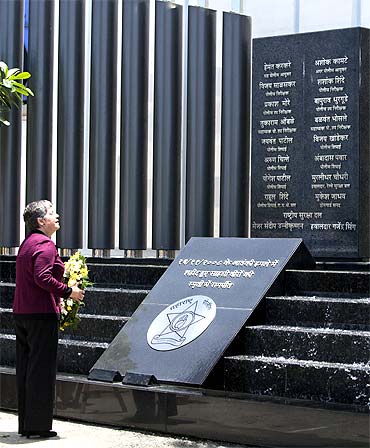
United States Homeland Security Secretary Janet Napolitano, who recently co-chaired the first-ever US-India Homeland Security Dialogue with Home Minister P Chidambaram during a week-long visit to India, dodged a question about whether the US would have any qualms if India undertook an operation similar to the US raid in Abbottabad.
Napolitano refused to answer rediff.com's pointed question about how the US would react if India launched a US Navy SEALs type of attack -- similar to the one that killed Osama bin Laden in Pakistan's Abbottabad -- to eliminate the leadership of terror outfit Lashkar-e-Tayiba which is responsible for the horrific 26/11 terror attack in Mumbai.
"Well, I am not going to answer that question," she told rediff.com during an interaction that followed her remarks at the Center for Strategic and International Studies, a Washington, DC based think tank.
But she acknowledged that the LeT, which she had described as an 'Al Qaeda like' organisation, had figured prominently in the US-India dialogue.
Reportage: Aziz Haniffa in Washington, DC
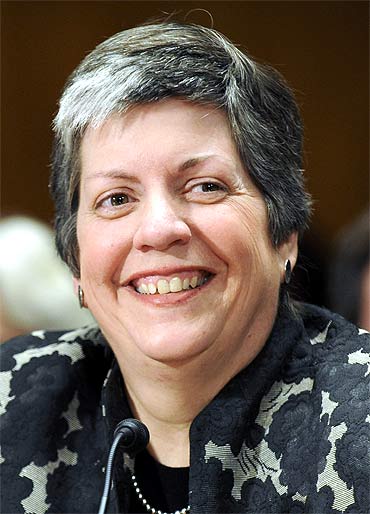
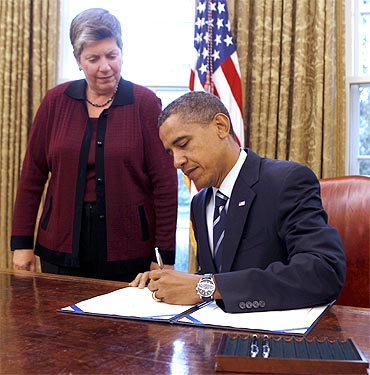
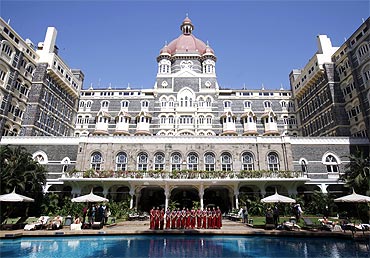
"And the United States is very supportive of that. The United States believes that it is in everyone's interest for India and Pakistan to be able to work together and we also believe that there is interest in regional stability -- India, Pakistan Afghanistan, that is in those countries interests and also the United States' interests. So, where we really focus on are the areas of consensus and a pathway forward and possibilities for strengthening that," she said.
Napolitano said in terms of the internal security threats India was facing, like the persistent Naxal insurgency, there had been no offer of special training by the US or anything to that effect.
But the two nations had discussed police tactics, police techniques and "how do you equip a SWAT team, what do they need to have, what kinds of training needs to occur, how do you have vetted units, where do you need to have them, what is the relationship between local police councils and Delhi -- these kinds of discussions."
She also acknowledged that with the reservoir of talent and expertise both in India and the US in terms of scientific and technical know-how coupled with India's prowess in information technology, there certainly could be a US-India working group set up for joint cyber-security "where we put the really smart people together."

"There are lots of issues about how code is written and how you can make code less vulnerable to attack and how you can better detect and prevent attacks and how you can have more resilience to something that is being attacked," she said.
Earlier, in her opening remarks, she recalled her visit to Mumbai -- the first stop on her visit to India -- and her stay at the Taj Mahal Hotel and her meetings with security and law enforcement officials.
"The idea was to begin to share ideas and thoughts about best practices, about effective policing in major cities, as well as port security, maritime security, cyber-security and border security," she said.
"And of course, Mumbai being the commercial center of India, it's a great place to begin that dialogue. But it's also an important place because it is there that India's 26/11 attack occurred," she said.
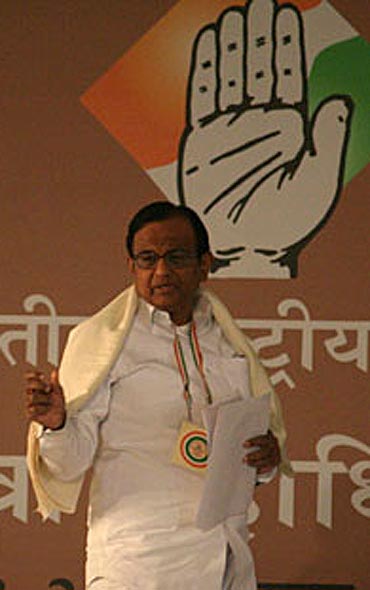
Napolitano said that during her stay at the Taj hotel, "One of the more interesting hours I spent was with the head of security at that hotel who was present during the time of the attack and spent an hour-and-a-half or so with me walking through the hotel on where the terrorists came, what entrances they used, where they positioned themselves, what kind of weapons they had, what were some of the problems that the security had in responding, what were some of the issues with SWAT teams, command and control efforts -- all kinds of things that go into the nuts and bolts on things, particularly when you are responding to a major incident such as that."
With regard to the dialogue in New Delhi, she said her counterpart Chidambaram who hosted her was "a very impressive individual" and predicted that this would be the first of many comprehensive dialogues.
"What I envision is that this will be an ongoing bilateral dialogue that will take place at least once and hopefully twice per year -- once in India, once in the United States on a variety of issues," she said.
Napolitano said, "We came away with a solid understanding of where we can enhance these joint efforts and continue to enhance a strategic partnership essential for the security and prosperity of both countries."